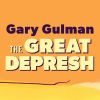8 Best-Selling Morals Books Millions Trust
Recommended by Ryan Holiday, Reid Hoffman, and Gary Gulman — discover best-selling Morals books that resonate widely





There's something special about books that both critics and crowds love, especially in exploring Morals—a topic that shapes how we navigate life every day. These eight best-selling Morals books have proven their value by guiding countless readers through complex ethical questions, offering frameworks that resonate across cultures and generations.
Ryan Holiday, a media strategist known for his deep dives into philosophy, champions The Moral Animal for its evolutionary perspective on human ethics. Meanwhile, Reid Hoffman, co-founder of LinkedIn, appreciates how these books blend theory with real-world relevance. Comedian Gary Gulman found How to Be Perfect not only enlightening but also entertaining, showing how humor can illuminate moral philosophy.
While these popular books provide proven frameworks, readers seeking content tailored to their specific Morals needs might consider creating a personalized Morals book that combines these validated approaches into a custom guide shaped by your background and goals.
Recommended by Ryan Holiday
Media strategist, former American Apparel marketing director
Robert Wright's exploration of human behavior through evolutionary psychology challenges many conventional views on morality. He digs into genetic influences behind actions like infidelity and social maneuvering, revealing how these biological strategies shape our ethical beliefs and societal norms. You’ll gain insight into the evolutionary roots of morality and how they manifest in everyday life, from personal relationships to workplace dynamics. This book suits anyone curious about why humans behave the way they do and how evolutionary forces underpin moral codes, though it may feel dense if you're seeking light reading.
Recommended by The New York Times
“David Brooks’s gift—as he might put it in his swift, engaging way—is for making obscure but potent social studies research accessible and even startling.”
by David Brooks··You?
by David Brooks··You?
Drawing from his extensive experience as a New York Times columnist and commentator, David Brooks examines what it means to live a meaningful life beyond personal success. He introduces the concept of the "second mountain," where life shifts from self-centered ambitions to commitments that bind you to family, vocation, faith, and community. You’ll gain insight into how these four commitments shape a fulfilling existence and why modern society’s emphasis on individualism can leave you feeling empty. The book balances personal stories with social critique, inviting you to reconsider what truly matters and how to align your life accordingly.
by TailoredRead AI·
This tailored book explores proven ethical methods that have consistently delivered results, focusing on your unique challenges and interests. It combines trusted moral principles with personalized insights, creating a learning experience that directly matches your background and goals. The content examines real-world moral dilemmas and provides thoughtful guidance, helping you navigate complex ethical questions with clarity and confidence. By concentrating on reader-validated knowledge, this book reveals how timeless morals apply to your specific context, making the exploration both relevant and engaging. Its personalized approach means you don’t wade through generic theory but engage with material tailored precisely to your needs. This focus deepens understanding and supports meaningful application of morals in your daily decisions and interactions.
by Michael J. Sandel·You?
by Michael J. Sandel·You?
Michael J. Sandel, a political philosopher known for his engaging teaching style at Harvard, challenges the growing influence of markets in spheres traditionally governed by moral values. This book invites you to examine controversial questions like paying children for good grades or selling citizenship, offering a sharp lens on how market logic reshapes society's ethical landscape. You’ll gain tools to critically assess where money’s reach should end, particularly in education, healthcare, and civic life. If you want to understand the moral tensions behind economic decisions shaping democracy, this book offers a thoughtful framework without moralizing, making it ideal for anyone curious about ethics in modern life.
by Michael J. Sandel··You?
by Michael J. Sandel··You?
Michael J. Sandel, a Harvard professor specializing in political philosophy, wrote this book to challenge and deepen your understanding of justice beyond abstract ideals. Through engaging discussions on topics like affirmative action, same-sex marriage, and the moral limits of markets, you gain tools to think critically about complex societal dilemmas. Sandel’s approach connects philosophical concepts directly to contemporary controversies, offering a clear framework for reflecting on your own values and the role of morality in public life. This book suits anyone eager to explore the tough questions of ethics and civic responsibility through accessible yet profound analysis.
by Deborah Adele··You?
by Deborah Adele··You?
What happens when deep academic knowledge meets centuries-old spiritual practice? Deborah Adele, with her dual master’s degrees in Liberal Studies and Theology & Religious Studies, explores the foundational ethical principles of yoga—the yamas and niyamas—in a way that invites you to take control of your own life’s direction. Through chapters dedicated to each principle like nonviolence and self-discipline, you’ll gain insight into how these guidelines shape attitude, thought, and action. The book suits anyone seeking clarity on living intentionally, especially those curious about yoga beyond the physical postures, offering structured self-study prompts to deepen personal reflection or group dialogue.
by TailoredRead AI·
This tailored book explores the journey to mastering moral understanding and ethical behavior within 30 days, focusing on your personal background and goals. It examines essential moral principles and encourages reflection on real-life dilemmas, providing a step-by-step pathway that matches your interests and desired outcomes. Each chapter reveals perspectives drawn from widely respected moral philosophies, combined with practical exercises designed to deepen your ethical insight and daily application. By tailoring the content to your specific situation, this book invites you to engage actively with the material, ensuring that the knowledge you gain resonates deeply and supports meaningful growth in your personal and social decision-making.
by Friedrich Nietzsche, Walter Kaufmann··You?
by Friedrich Nietzsche, Walter Kaufmann··You?
What if everything you knew about morality was wrong? Friedrich Nietzsche challenges the traditional views by exploring the origins and meanings of 'good' and 'evil' through a psychological and philological lens. You’ll encounter his analysis of master versus slave morality, the nature of guilt, and the influence of ascetic ideals, both religious and academic. Walter Kaufmann’s translation preserves Nietzsche’s sharp style and adds detailed commentary that deepens your understanding. This book suits anyone intrigued by ethics, philosophy, or the forces shaping moral values throughout history.
by Dalai Lama XIV·You?
by Dalai Lama XIV·You?
What happens when the Dalai Lama, a figure known for his spiritual leadership, addresses ethics beyond traditional religion? In this book, he explores a universal approach to morality that transcends religious boundaries, focusing on cultivating human values through mental training. You gain insight into how ethics can foster global understanding and mutual respect, offering a framework for those seeking spiritual fulfillment without religious affiliation. Chapters outline practical ways to nurture compassion and happiness grounded in shared human principles, making this a thoughtful guide for anyone interested in ethical living beyond faith-based systems.
Recommended by Gary Gulman
Comedian and HBO show creator
“I am LOVING Ken Tremendous’s new book How To Be Perfect: The Correct Answer To Every Moral Question. I am reading, learning, and laughing. These are my 3 favorite things to do in combination. Congratulations Michael!” (from X)
by Michael Schur··You?
by Michael Schur··You?
Michael Schur's background as a television writer and producer who shaped beloved series like The Good Place uniquely positions him to tackle moral philosophy with wit and clarity. In this book, you’ll explore ethical frameworks such as deontology, utilitarianism, and existentialism, unpacked through relatable, often humorous questions—from the trivial (“Should I punch my friend for no reason?”) to the profound (how to appreciate art created by morally problematic artists). This approach helps you not just understand but articulate complex moral ideas in everyday conversations. If you’re curious about applying centuries of philosophical thought to the decisions you face daily, this book offers an engaging and accessible path. It’s especially fitting if you appreciate humor alongside thoughtful reflection, though those seeking purely academic rigor might find it lighter than expected.
Popular Morals Strategies Tailored for You ✨
Get proven ethical methods without generic advice that misses your goals.
Trusted by thousands of Morals enthusiasts worldwide
Conclusion
These eight books highlight distinct but complementary approaches to understanding Morals—from the evolutionary roots in The Moral Animal to the practical ethical challenges in What Money Can't Buy and the spiritual guidance of The Yamas & Niyamas. If you prefer proven methods grounded in science and social insight, start with Robert Wright and Michael Sandel. For validated approaches blending philosophy with everyday life, How to Be Perfect and Justice offer accessible paths.
Consider combining these perspectives to deepen your grasp of morality’s many dimensions. Alternatively, you can create a personalized Morals book to blend proven methods with your unique interests and experience. These widely-adopted approaches have helped many readers succeed in navigating ethical questions with confidence.
Frequently Asked Questions
I'm overwhelmed by choice – which book should I start with?
Start with The Moral Animal if you're curious about why we behave morally, or How to Be Perfect for a witty, accessible intro to ethical reasoning. Both offer solid foundations before diving into more specialized works.
Are these books too advanced for someone new to Morals?
Not at all. Books like How to Be Perfect are written with humor and clarity, making complex ideas approachable. Others like The Second Mountain use relatable stories to explore moral life, suitable for beginners.
Do I really need to read all of these, or can I just pick one?
You can pick one that matches your interests—whether it's philosophy, spirituality, or social ethics. But reading multiple offers richer perspectives on morality’s many facets.
What makes these books different from others on Morals?
These selections are both expert-endorsed and best-selling, reflecting proven impact and broad reader validation. They balance academic rigor with practical insight, making them stand out in the field.
Are there any books here that contradict each other?
They sometimes offer contrasting views—like Nietzsche’s critique in On the Genealogy of Morals versus the Dalai Lama’s universal ethics in Beyond Religion. This diversity invites critical thinking rather than uniform answers.
Can I get a Morals book tailored to my specific needs?
Yes! While these expert books provide strong foundations, personalized books combine proven insights with your unique background and goals. Learn more by creating your own Morals book.
📚 Love this book list?
Help fellow book lovers discover great books, share this curated list with others!
Related Articles You May Like
Explore more curated book recommendations







